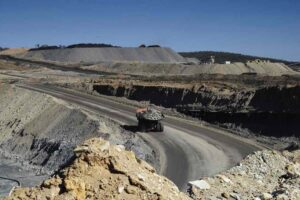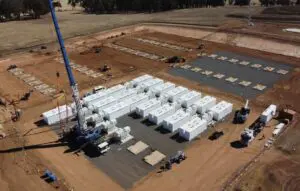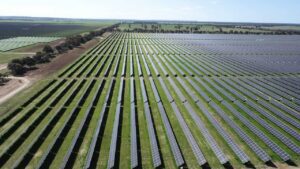The $11.6 billion that Australia spent on fossil fuel subsidies last year could pay for an electric vehicle charging station every 12km on every major road in the country, says the Climate Council.
Or it could replace 15,500 diesel buses – the whole public fleet in Sydney, Melbourne and Brisbane and then some – with electric versions.
“It’s utterly absurd that the Australian government wastes $22,000 every single minute in subsidies for the fossil fuel industry – which is posting record profits at the same time as many Australian families are struggling to make ends meet,” Climate Council economist Nicki Hutley said.
“Imagine if we could install solar panels on every public housing building in the country, or if we could electrify three major Australian cities’ entire bus fleets. This really brings home the sheer scale that the polluting fossil fuel industry is getting in tax breaks and benefits. It’s crazy.
“There are any number of positive initiatives the Federal Government could invest taxpayers’ money in that don’t worsen climate change. We have a few ideas and guess what – they are all designed to ease the cost of living and propel us towards zero emissions. These are, by far, a better bet.”
Those ideas include building 72,500 public EV charging stations – Australia currently has just 1,653, Hutley says – paying for 138 new big batteries, 15 pumped hydro facilities, or solar panels on 1.5 million homes.
Can Australia cut the cord?
Prime minister Anthony Albanese is under pressure to end $1.93 billion in new subsidies promised by the previous government.
This money is currently unallocated, but still available for opening up new coal and gas basins, new plants, import terminals, new petrochemical factories and carbon capture and storage programs.
But fossil fuel subsidies are hard to kill.
They take the form of direct payments to develop oil, gas or coal production such as the $4.4 billion the Commonwealth and Queensland governments are giving to develop the Adani coal mine, or tax breaks such as the $8 billion Fuel Tax Credit Scheme, a diesel excise exemption for some industries.
G20 countries committed in 2009 to eliminate “inefficient” fossil fuel subsidies but the phrasing remains vague: the Gillard government at the time said Australia had no inefficient subsidies, and the UK continues to deny it has any.
Even if the federal government does not remove the range of fossil fuel subsidies it is already on the hook for, it is considering adding some to support the EV market.
Legislation to remove import taxes and fringe benefits taxes on zero emission cars is currently before the Senate and will be retroactive for all eligible vehicles bought after July 1, which will bring down the price of EVs.
And the outcome of consultation on the government’s National Electric Vehicle Strategy is being keenly awaited for the expected changes to fuel efficiency standards, which are expected to accelerate demand for more efficient or zero emissions cars.










